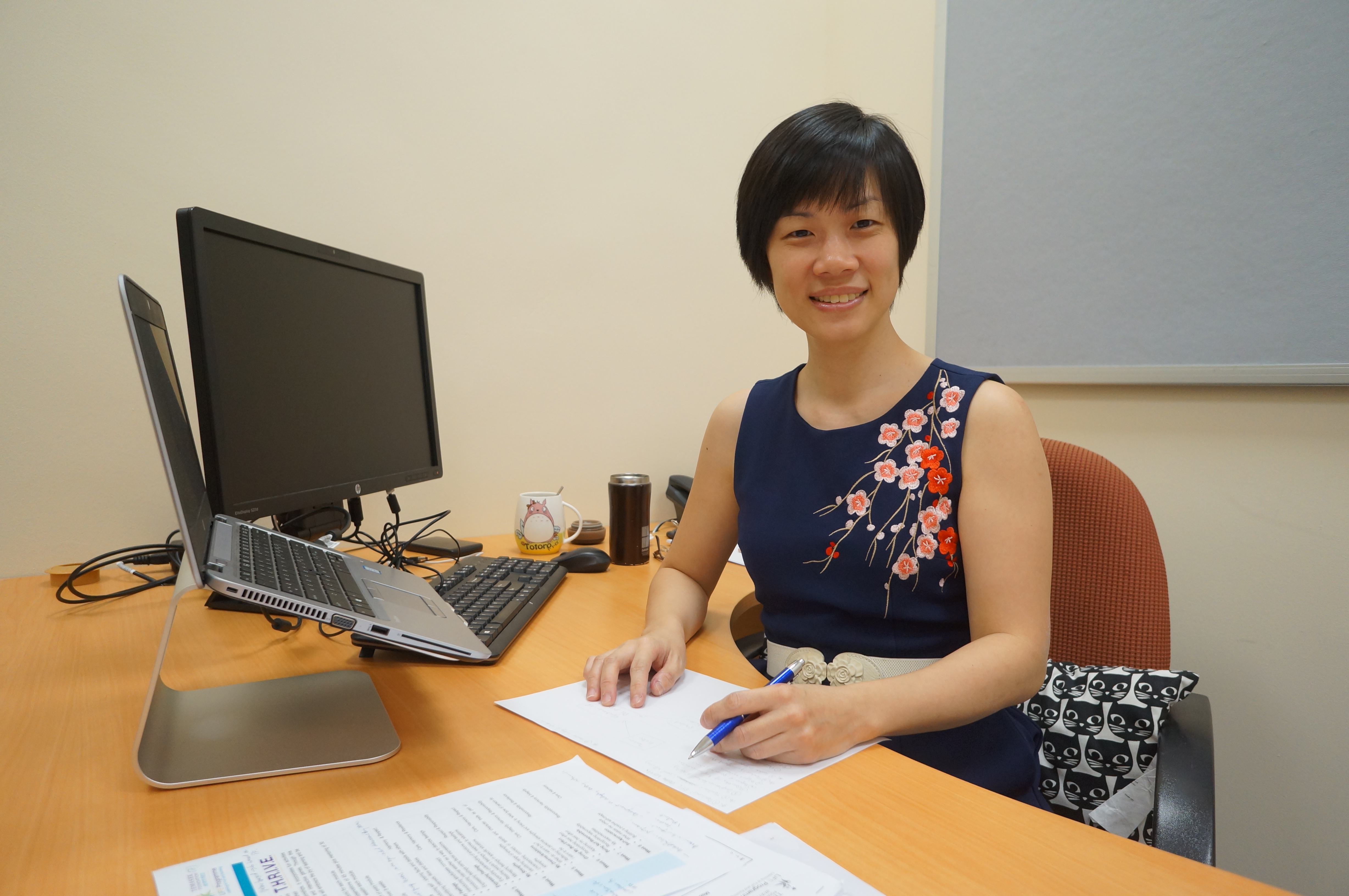Young Children’s Voices in Mathematical Problem Solving
Contributed by Dr Ho Siew Yin and Sng Wei Qin Abbie, from NTUC First Campus, for SingTeach Virtual […]
Read More
Preschool teachers are central to quality early childhood education. Their ability to be nurturing and effective educators begins with a healthy state of mind. We speak to one NIE research scientist to learn about the importance of promoting preschool teachers’ well-being: a factor in enabling children to flourish.

Ee Lynn believes in the importance of promoting preschool teachers’ well-being as it is a crucial factor in enabling children to flourish.
“Caring for children in their early years is not simply about feeding and cleaning up after them,” says Dr Ng Ee Lynn, a Research Scientist with NIE’s Centre for Research in Child Development.
In fact, early childhood is a period in which children learn how to take turns to share, interact with others and regulate their emotions. “Children acquire these socio-emotional skills, which many of us take for granted, when they are in an environment (e.g., classroom) doing activities together with their peers,” explains Ee Lynn.
Children also pick up basic literacy and numeracy skills during their preschool years, which will equip them for primary school education.
To facilitate the academic and socio-emotional development of young children, preschool teachers have to provide a conducive learning environment and engage in quality interactions with them. “These responsibilities illustrate that preschool teachers are not actually babysitters, but educators who play a pivotal role in nurturing the young,” Ee Lynn says.
The ability of preschool teachers to provide quality early childhood education, however, rests in their well-being.
“Preschool teachers are not actually babysitters, but educators who play a pivotal role in nurturing the young.”
– Ng Ee Lynn, addressing the misconception that some people may have about preschool teachers
One major factor that can undermine preschool teachers’ well-being is work-related stress which, if not properly managed, can have repercussions on child development.
“Studies have shown that when teachers are stressed, they are less likely to be positive and enthusiastic in the classroom, which thus affects both the learning environment and quality of teacher-child interactions,” explains Ee Lynn, whose research interests lie in stress and anxiety.
Moreover, teachers who feel stressed may unintentionally be inconsistent with their behavioral management strategies.
“For example, when feeling stressed, they may scold a child for a minor transgression whereas under circumstances when they are more composed, they may respond more constructively to the child for a similar wrongdoing,” says Ee Lynn.
Such inconsistencies not only confuse children, but can also cause them to be afraid of their teachers and struggle to focus in the classroom. “This is because children would often be wondering how their teachers would respond to their actions and behavior,” Ee Lynn adds. “In the long-term, these consequences are detrimental to children’s learning and well-being.”
Ultimately, preschool educators are responsible for teaching children to regulate their behavior and thus have to set good examples for them. “If children observe that their teachers are not regulating their stress levels and emotions, they will not have good role models to emulate,” shares Ee Lynn.
“When teachers are stressed, they are less likely to be positive and enthusiastic in the classroom, which thus affects both the learning environment and quality of teacher-child interactions.”
– Ee Lynn
While work-related stress can undoubtedly have negative repercussions, preschool teachers cannot avoid it altogether. “Dealing with work-related stress is thus a matter of addressing the factors that contribute to it and finding effective ways to manage them,” says Ee Lynn.
At present, studies on stress in local preschool teachers are scarce. Nevertheless, Ee Lynn posits that existing research conducted on primary and secondary school teachers can provide an insight into the factors that contribute to work-related stress in preschool teachers. “These include the workload, support from colleagues and school leadership, parental expectations, work-life balance as well as personal expectations,” Ee Lynn adds.
For preschool teachers in particular, Ee Lynn reckons that their current lack of professional status also affects their stress levels. “Some actually regard preschool teachers as mere babysitters rather than educators, which can be demoralizing for them,” shares Ee Lynn.
So what can be done to support our early childhood educators and promote their well-being?
According to Ee Lynn, recognizing preschool teachers’ contributions is crucial for alleviating their work-related stress and boosting their professional status.
“The establishment of the National Institute for Early Childhood Development (NIEC) is thus a good start as it shows that preschool teachers are gaining recognition as educators and will have access to opportunities for professional development,” says Ee Lynn.
In addition, perceptions of preschool teachers as babysitters also have to change. “After all, they play a key role in educating young children and their job is no walk in the park,” explains Ee Lynn.
On her part, Ee Lynn, who is leading an ongoing pilot study on stress in local preschool teachers, hopes that the data from her research can provide a contextualized understanding on job stress in early childhood educators. In doing so, efforts to address this issue can be more targeted.
“At the end of the day, when teachers feel valued and are able to manage their stress levels, they will be part of a happier workforce. This would positively impact both their work and personal lives,” Ee Lynn adds.
“At the end of the day, when teachers feel valued and are able to manage their stress levels, they will be part of a happier workforce. This would positively impact both their work and personal lives.”
– Ee Lynn